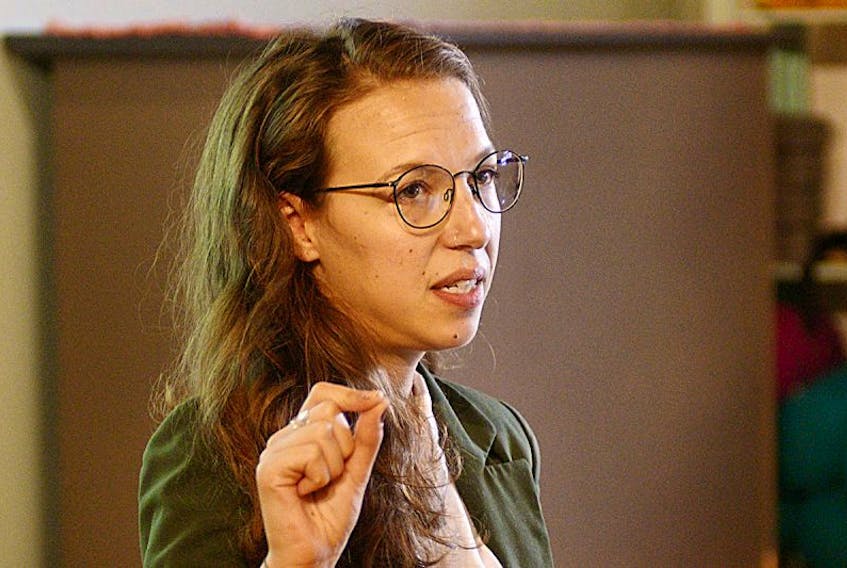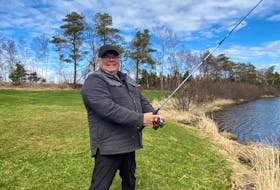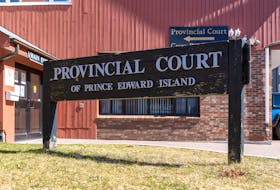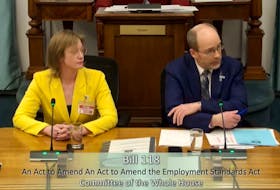MacEachern, a communications consultant, says the province has the opportunity to see a substantial economic impact through cannabis, which is expected to become a multi-billion dollar industry once it’s legalized across Canada next summer.
However, she said the province must first approach the issue with more education.
“I have a dream of Prince Edward Island becoming Canada’s green Island. I really think that growing cannabis here and allowing cannabis tourism should be something that is highlighted on P.E.I.,” MacEachern said during the second public discussion in Charlottetown on the upcoming legislative changes. “But the implications and consequences of the way that cannabis is going to be rolled out in P.E.I., and frankly across Canada, is terrifying.”
About 30 people took part in the discussion, which was held Sunday in Charlottetown, with many poking holes in a provincial survey on the issue.
––––––––
Have your say
Islanders can fill out the province’s survey on cannabis legislation online at www.princeedwardisland.ca/en/service/have-your-say-cannabis-legislation. A written submission can also be dropped off to any Access P.E.I. location. Submissions must be made before Sept. 30, 2017.
––––––––
The meeting also resulted in the formation of a small working group that will continue to address the issue on P.E.I.
While the federal government will legalize cannabis, it will leave decisions on regulation to the provinces. That includes retail models, who can purchase it and where it can be consumed.
P.E.I.’s provincial government asked Islanders about those aspects in the online survey, with the last day to complete the survey being Sept. 29.
Finding the survey somewhat biased and lacking information, MacEachern said she approached the province earlier this year to see if they would be holding public engagement sessions.
She was surprised when she was told there were no intentions to seek public feedback other than the survey.
“That scared me,” said MacEachern, who organized the two public sessions in Charlottetown.
Some fears shared by Sunday’s participants included the province creating a “monopoly” of producers and retailers in the industry, as well as a lack of mention of e-commerce models in the survey.
In Canada, anyone with a license over the age of 18 can purchase cannabis online and have it mailed to their door within a couple days, said MacEachern, adding that those websites are currently driving the black market.
“If you don’t think kids can get cannabis now you’re sorely misinformed,” she said.
There was also concern over the industry becoming too heavily regulated as well as the government’s lack of knowledge on cannabis.
One example was the federal government limiting the number of plants Canadians can grow to four without exceeding an “arbitrary” number of three feet.
MacEachern and others at the meeting noted that, depending on the method of growing and the strain of plant, a single three-foot tall plant could easily exceed the production from three larger plants combined.
“Limiting the height is not going to reduce yield,” she said.
Other concerns mirrored those being shared in other provinces, such as the government creating too limited a supply by restricting the number of retailers.
Craig Gaudet, owner of Island Therapeutic dispensary, agreed P.E.I. could see economic growth from legalization.
Operating P.E.I.’s only dispensary, Gaudet said he knows his business will eventually be defunct once there are retailers in the province.
However, he feels there will also be a need for more niche products, like micro-groweries, edibles, and “craft cannabis.”
“P.E.I. is set up perfectly,” he said. “We are the second most accepting province in the country when it comes to marijuana as a social aspect. We already grow hemp on P.E.I., more than 250 acres of it. We have the smart kitchen, the bioengineering and the cooks available. And we have the best grown product in the country.”









